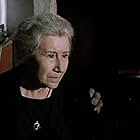Alida Valli makes a very sensitive and convincing appearance here, as the poor village girl who is discovered by a young dashing aristocrat (Massimo Serrato), an heir of a fortune, who marries her against his grandmother's will, an aging stagnating marchioness, who denounces both of them when they marry, like a stepmother of the very worst sort. Of course their love overcomes everything and even the overwhelming tragedy in the end, which occurs simultaneously with the liberation of Italy, the Risorgimento movement, with count Cavour as the leading politician unifying Italy. It's a very romantic novel, like an Italian "Gone with the Wind" with obvious bearings also on Alessandro Manzoni's "The Betrothed", while the film points forward to both Visconti's "La terra trema" and his "The Leopard" - the film could be seen as a twin version of "The leopard" but in Lombardy instead of Sicily, but the action here is more dramatic and more human. The cinematography is exquisite, the 1850s are reconstructed with minute and meticulous historical realism, especially concerning the costumes, and the music is excellent in its discretion. Mario Soldati was one of the great forerunners of Italian neo-realism and important for many great international epic films, and this was one of his first masterpieces while it also launched Alida Valli's career.













